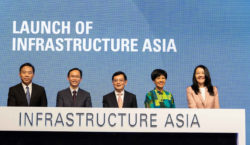Denmark attended Singapore FinTech Festival with a big delegation as a continuation of intentions to establish fintech (financial technology) collaborations and expand business opportunities further, following two MoUs signed between Denmark and Singapore earlier in the year. And Copenhagen FinTech’s CEO returned back home mighty impressed.
Back in May Copenhagen FinTech and Singapore Fintech Hub had agreed to kick-start a process that would look at possibilities for collaboration, identify possible roadblocks and build a bridge between Singapore and Copenhagen. Following this, the Monetary Authority of Singapore, MAS, and the Danish Financial Supervisory Authority, Danish FSA, (in the end of June) signed a ‘FinTech Co-operation Agreement’ aiming to help FinTech companies in Singapore and Denmark to expand into each other’s markets.
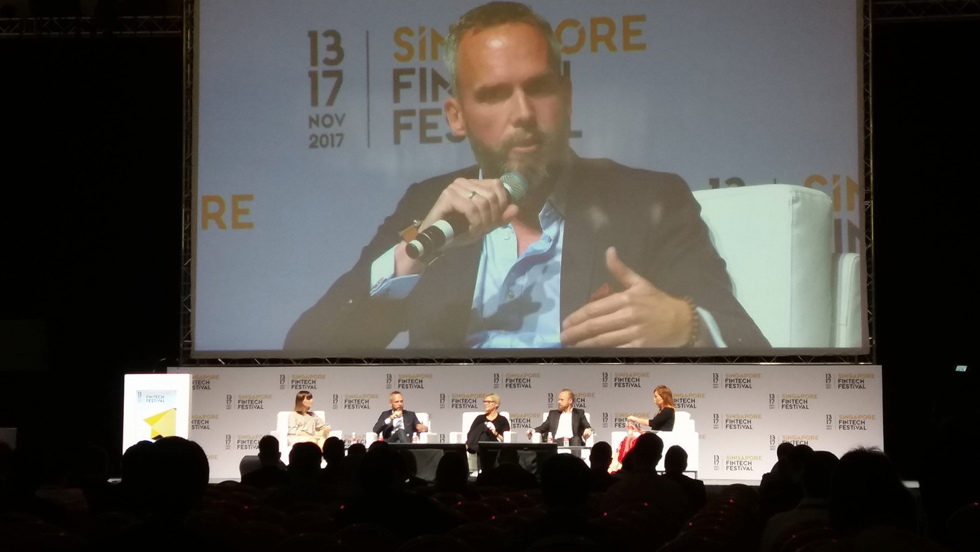
The agreement enables between the two regulators to refer fintech companies to their counterparts and they are also committed to exploring joint innovation projects together, and to share information on emerging market trends and their impact on regulation.
Thomas Brenøe, Deputy Director General, Danish FSA commented that financial innovation is not confined to national borders, and they were therefore delighted to enter into the agreement with MAS.
Copenhagen Fintech, meanwhile, was set up as recently as in September 2016 as an incubator and co-working space for fintech companies. It aims at driving innovation and to position Denmark as a global player in the industry.
Bringing a delegation to the Singapore FinTech Festival was the culmination of efforts that began in the beginning of 2017. Singapore is one of the leading global fintech hubs and the festival is bringing together the global financial community in a weeklong celebration of fintech.
Just back from a very rewarding visit to the festival Thomas Krogh Jensen, Copenhagen FinTech’s CEO, had only praise for the trip to Singapore, ranking this fintech summit as the highest globally, when asked to compare.
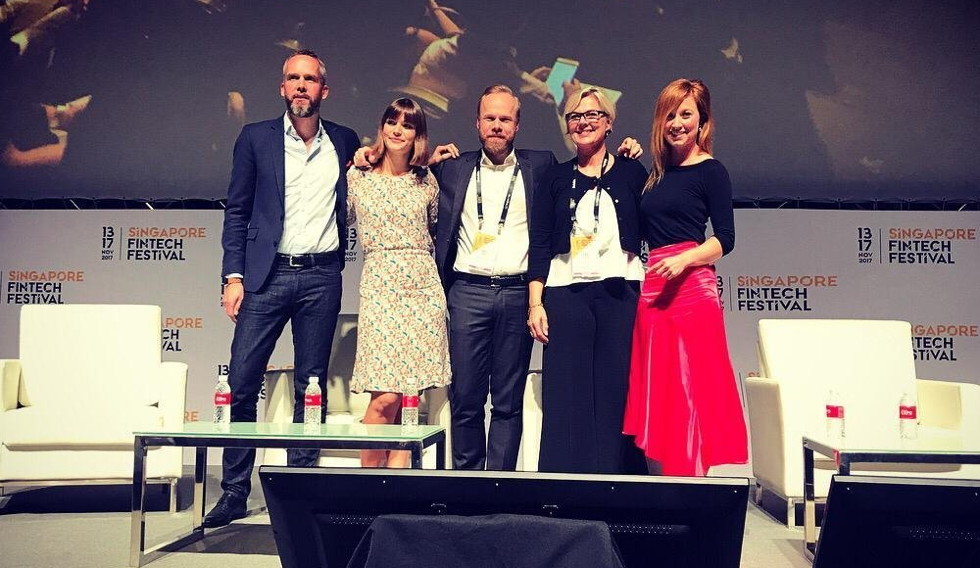
“The amount of people and the very high level of those who participated makes it the number one event. Asia was of course highly represented but they had managed to get in many other countries so the diversity was also really good. I think, compared to many others, this is also a very start-up friendly conference so the start-ups also got a lot out of it, so I think MAS had done a really good job,” says Thomas Krogh Jensen.
Aside the Royal Embassy of Denmark in Singapore and Copenhagen FinTech itself, 17 Danish organisations participated, including also Danish FSA.
“Our companies really met great contacts and had many fruitful conversations with banks, the Singaporean regulator and different fintech hubs they were approached by. And Ernit pitching on stage during Demo Day as one of the 20 Global FinTech Hackcelerator companies was also awesome,” adds the CEO.
The first step of the Copenhagen-Singapore collaborative process is to build bridges that connect Asian companies to European and vice versa
“We brought these companies that all have the ambition of scaling or doing business in Asia so this was a clear step in the plan to connect the two ecosystems more together. Right now, in terms of the bridge we are working on trying to formalise this a bit more for Danish companies wanting to scale to that region. We are not done with that work, but are aiming at setting up some formal process. It is not only regulatory-wise, but also: How do I attract the investors for scaling, and how do I attract the right partnerships? What are the legal requirements around setting up a business? And so on. There are many dimensions to setting up a bridge like this and operationalize it. There are a lot of MoUs being done and I think what we have to focus on here is getting real value out of it. And there is certainly progress being reached in close dialogue with various different stakeholders.”
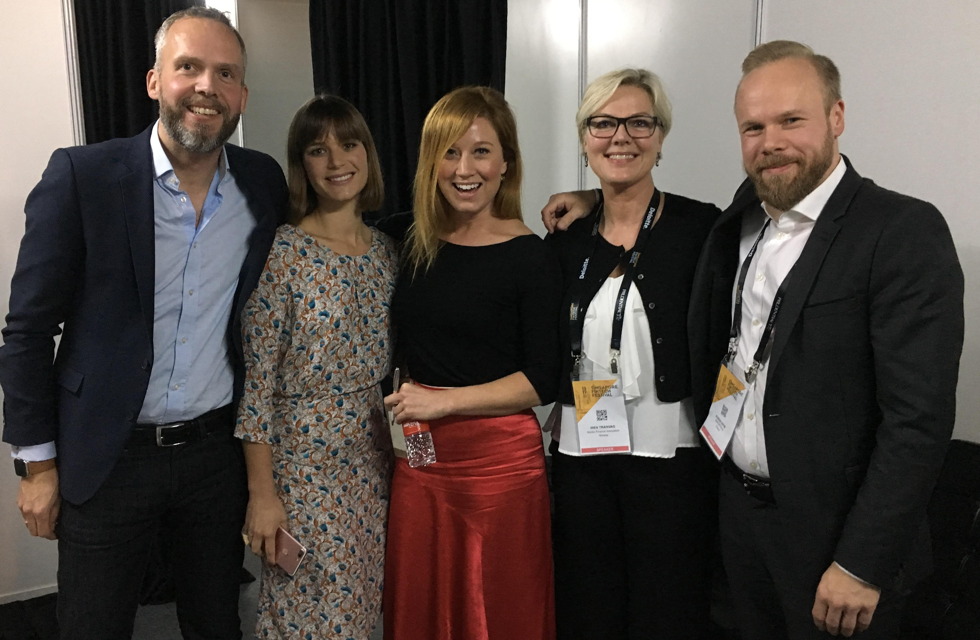
In his capacity as Danish and Copenhagen FinTech representative Thomas himself participated in the ‘FinTech Northern Lights’ panel discussion, along with Aleksi Grym Head of digitalization, Bank of Finland and Iren Tranvag CEO, Nordic Finance Innovation.
The Dane discloses that this actually turned into the starting point for a closer collaboration between the Nordic countries. “We hold regular meetings between the different hubs in the Nordic region, while we have now decided to also look at how we can collaborate on how to help start-ups scale outside the Nordics and of course the Asian market is quite attractive so that could be one of them. Also we’ll look into doing shared events and market them to the eco-systems, and perhaps shared global delegation visits so the Nordics join together and send start-ups from the Nordic region.”
”We have been working on setting up a bit more formalised collaboration between the Nordic hubs. Oslo’s fintech hub was established as recently as in early November this year. Stockholm Fintech Hub has been there since the beginning of this year and Finland’s Helsinki Fintech Farm and Copenhagen FinTech hub were established last year. All four joined forces and put on paper what we’d like to collaborate on to convey to the global audience in Singapore,” continues Thomas.
One of the things he highlighted in the panel from the Danish perspective, and which he believes also applied to the Nordic region, is how fifty per cent of fintech start-ups already have a corporate partner and that around 70-80 per cent of them are actively looking for one.
“There is a lot of collaboration going on and there is still a lot of appetite from the corporate side and we still need to work a little bit on the capabilities of actually being able to engage with these start-ups. But that coin of course has two sides; it’s about the start-up learning to do business with the corporations. But it’s maturing in that it is moving away from just being curious and having a lot of meetings more towards: If we meet and talk it is because there is a real intention on both sides. We want to do business, we want to bring real solutions to the market and improve the value proposition of the bank or the start-up or whatever the collaboration is about.”
As for the growth of Copenhagen FinTechHub–its vision being to create a Danish fintech ecosystem of Nordic top class level–it has since its inception reached way beyond his imagination.
“There are now fifty companies in the fintech lab, including 160 people. It has gone from almost nothing to this in about a year, so this has really been growing fast. And we have been gaining traction very fast. We didn’t see this coming and I think proof of that is that we started with two floors with room for just under a hundred people. Then we opened a third floor and recently had to open a fourth floor.”
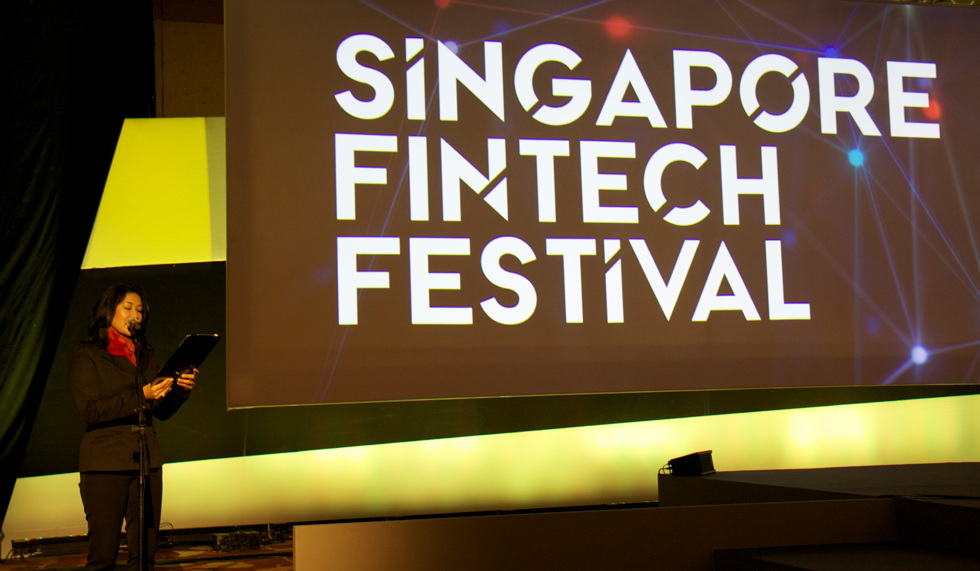
They were formed buy the bankers association, the financial services union, and the city of Copenhagen. So they are a public-private partnership with both public and mainly private funds. They do three things: 1) Run a Danish innovation network with all the universities where they get funds to distribute to research; for example in the universities within fintech and bridge that to the start-ups and the corporates. 2) Run the incubator and co working space with different programmes. A pre-accelerator programme for very early stage fintechs was recently launched. 3). Initiate international collaborations and trying to help start-ups scale.
“We really need to teach the start-ups that this is about scaling and scaling fast because there’s so much going on in this space and that is also one of my takeaways when you look at the start-ups in the Asian region: there are so many things going on across the board within fintech and financial services now so the ones who will win or be first are probably the ones that will scale the fastest,” Thomas concludes.

